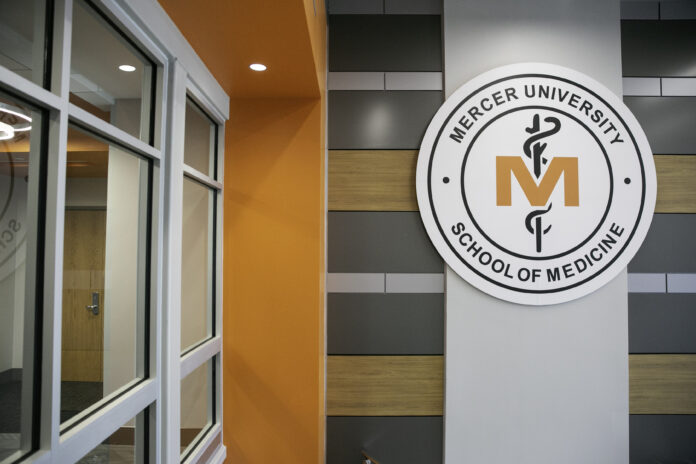
COLUMBUS/MACON/SAVANNAH – Mercer University School of Medicine (MUSM) next fall will enroll its inaugural class in the new Doctor of Philosophy degree in Biomedical Sciences (Ph.D. BMS). The program will be offered on the medical school’s campuses in Columbus, Macon and Savannah.
This comprehensive five-year doctoral program, centered on research, is crafted to prepare graduates for successful careers in biomedical research, including in academia, biotech companies, hospitals and laboratories. Students will work closely with research mentors in the Department of Biomedical Sciences and will have the opportunity to choose research projects in various biomedical disciplines, including biochemistry, neuroscience, microbiology, virology, cancer biology, cardiology, immunology, toxicology and physiology.
Distinguishing features of this program include small class sizes, access to high-level research, financial support opportunities and hands-on teaching experience. Graduate trainees will actively teach graduate and medical students, a unique opportunity among all similar Ph.D. programs in the Southeast.
In alignment with the School of Medicine’s mission and vision, the Ph.D. program actively involves students and faculty in impactful scientific research. Through the dissertation process, students will build knowledge and develop projects that expand the field of biomedical research. The program will also provide undergraduate and medical students opportunities to work alongside graduate trainees and faculty to gain research experience.
“The School of Medicine is delighted to offer this outstanding opportunity,” said Jean Sumner, M.D., FACP, dean of the School of Medicine. “Working with the biomedical researchers in the School of Medicine is an important part of our academic program. Learning to teach medical students and working with the School on research to strengthen our rural mission will be unique to the Ph.D. program.”
The initial year of the program is modeled after the current School of Medicine Master of Science in Biomedical Sciences program (MSBMS), which is no longer admitting students. The Ph.D. program will produce graduates who are eligible for a wide spectrum of jobs in the science workforce, including post-doctoral fellowships for further specialization in their biomedical sciences field and professorships at the college and university level.
Christy Bridges, Ph.D., a tenured professor in the Department of Biomedical Sciences, will serve as the program coordinator. Dr. Bridges has served as the program director of the MSBMS program since 2018. Dr. Bridges has published 74 peer-reviewed manuscripts and has presented her research at 40 national conferences. Her research has been funded by the National Institutes of Health and Navicent Health Foundation. Since joining the faculty in 2006, Dr. Bridges has taught medical students in small-group discussions and full-class lectures and interactive sessions. She maintains an active research laboratory and has trained numerous undergraduate, graduate and medical students in her area of research.

“I am excited because the new Ph.D. program will give students on all three campuses the opportunity to choose a cutting-edge research project that interests them,” said Dr. Bridges. “This program represents a major step in growing biomedical research at the School of Medicine, and we are grateful for the University’s support.”
The Ph.D. BMS program contributes to Mercer’s research profile as an R2 Carnegie classified institution, aligning with the University’s overarching goal of providing outstanding opportunities for doctoral-level research. For detailed information on educational requirements and application procedures, please visit medicine.mercer.edu/bms.









